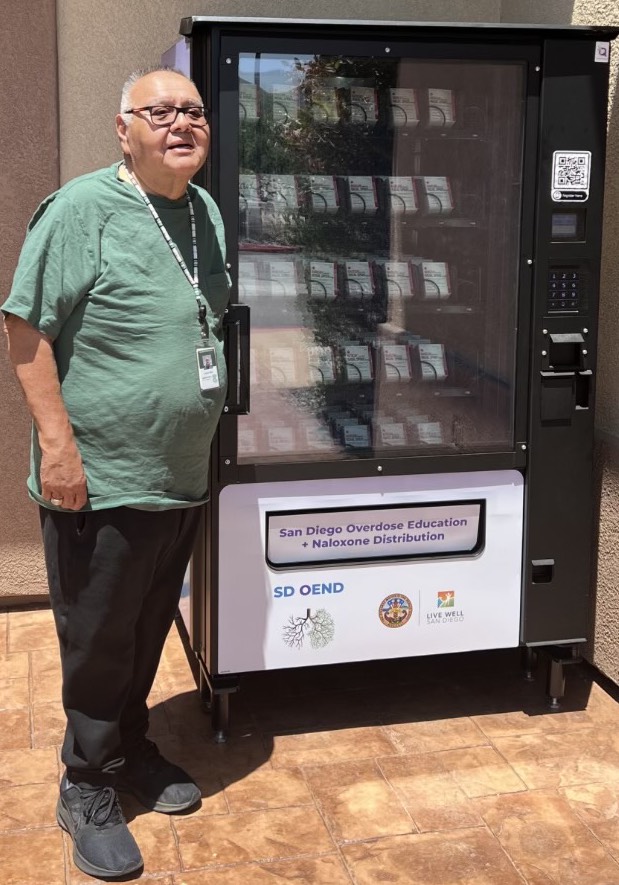
- Details
- By Elyse Wild
Teva is based in Israel and is one of the world’s top producers of pharmaceutical opioids. It is one of nearly a dozen companies that has been sued in recent years by tribal nations, states, and local governments for its part in the opioid crisis.
In a settlement reached last year, Teva agreed to pay federally recognized tribes a total of $119 million over 13 years. The company has also agreed to provide up to 20,000 doses of Naloxone to Tribes over the next decade.
Naloxone has proven crucial to saving lives during the ongoing opioid and overdose crisis. It works by blocking the effects of opioids on the brain and restoring breathing. It is highly effective, reversing up to 93% of overdoses. Part of what makes Naloxone so effective is that people can easily administer it.
Arlene Brown (Bishop Paiute Tribe), founder and CEO of Crossroads Recovery Center and Skoden Native Harm Reduction Services, the first California state-certified syringe program created explicitly for Native people, says that tribal communities having access to Naloxone is “literally the difference between life and death.”
“Naloxone prevents fatal overdose and means we don’t have to bury another loved one, especially in a time when we are losing so many and would do anything for a second chance with them,” Brown told Native News Online. “Naloxone gives us all that second chance and means that the youth who wanted to try drugs for the first time doesn’t lose their life, or the elder who forgot they already took their medication or accidentally dropped it on the floor that the toddler found doesn’t lose their life.”
"It means that we don’t have to lose 4-6 people at the same time when fentanyl comes through, and it means that our babies don’t have to grow up without parents.”
According to a statement by the National Indian Health Board, each Tribe is entitled to a pre-determined amount of Naloxone, allocated per unit, with 12 boxes to one unit. Each box contains two doses.
To receive the free Naloxone, Tribes must fill out a Naloxone Interest Form by October 15, 2023. Boxes must be shipped to a Tribal pharmacy, Indian Health Service, or a recipient designated by the Tribe. After receiving the Naloxone, Tribes may freely distribute the medication. If a tribe does not fill out the interest form, its share of Naloxone will be distributed to other interested tribes.
Naloxone use and availability is a foundational piece of harm reduction, an evidence-based approach that seeks to mitigate the negative impact of drug use. Other harm reduction practices include syringe exchange programs and the distribution of fentanyl testing strips.
While harm reduction has been proven to prevent deaths from overdoses and reduce the spread of disease associated with drug use, the stigma around harm reduction persists.
“Naloxone is just one way to help our people through this epidemic, which is why it’s critical to properly saturate and educate our communities about how to administer it and to have it close by,” Brown said. “We also need to make sure we’re having these important conversations within our communities so we don’t let stigma and prejudice keep life-saving tools out of reach.”
Tell Us What You Think
More Stories Like This
New Mexico Will Investigate Forced Sterilization of Native American WomenUSDA Expands Aid for Lost Farming Revenue Due to 2025 Policies
Two Feathers Native American Family Services Wins 2026 Irvine Leadership Award
Bill Would Give Federal Marshals Authority to Help Tribes Find Missing Children
Indian Health Service to Phase Out Mercury-Containing Dental Amalgam by 2027

